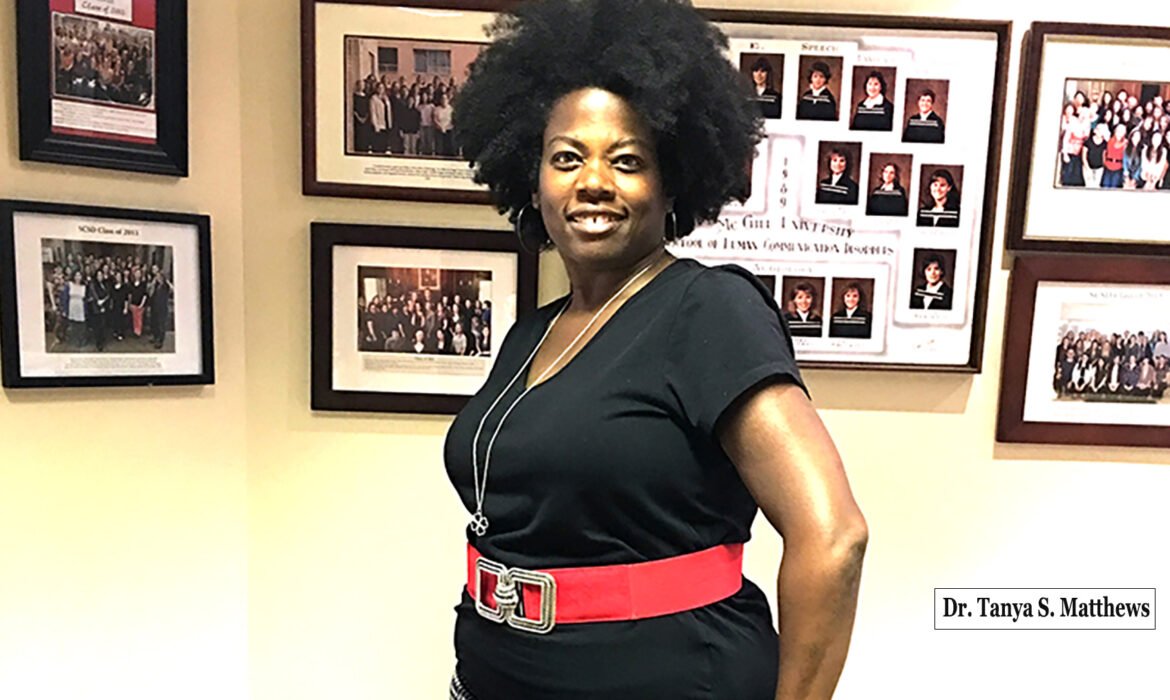“I can’t speak for here but I know for a fact that in the United States, there’s a high correlation between low income, poor literacy, drop-out rate and jail,” so says Dr. Tanya S. Matthews, a research fellow at McGill University’s School of Communication Sciences and Disorders, pointing to the impact of misdiagnosing speech and reading capabilities in certain groups of students.
The North Carolina-born speech language pathologist concludes that the abundance of proof from studies conducted in the US combined with anecdotal evidence lead her to believe that the situation is the same here in Montreal.
Also, that students in our community are more than likely to be among those most victimized by this cultural disconnect in classrooms where educators are expecting and demanding standard English or French.
“It started back in the 80s, when Black American language was coming to the forefront and kids were being sent to speech and language services because in their speech or writing they may have dropped the ending of a word or may not conjugate a verb correctly,” says Dr. Matthews. “Educators looked at it as a language impairment.”
She says “it took years and years” before speech and language professionals realized that it had nothing to do with intelligence.
“These kids were speaking and writing a dialect that they were exposed to in their homes. Because language is learnt in a cultural context.
These kids are not speaking the way their teachers are speaking, their parents don’t talk like that.”
She says alarm bells go off when you bring these kids into classrooms and the teachers hear their language they think “language disorder.”
“That’s because they (the teachers) are not informed.”
Dr. Matthews determines that the situation is just as pronounced in Montreal with a significant number of students coming from immigrant homes, with parents either from the Caribbean, Africa or elsewhere.
She says they are going to schools immersed in the various dialects of their parents and are being confronted by teachers who are not familiar with their cultural context.
“When you throw French or English in that mix, it can be confusing or even overwhelming for the student.”
That in itself can lead a child to a question his place in the classroom and ultimately drains his desire to go to school, she adds.
The issue is of such urgency that Dr. Matthews, has undertaken a study to examine oral language and early reading practices used in the homes of Black Canadian families with English-speaking or bilingual children between the ages of three and five years old.
She says her findings will eventually make their way into the education system and also provide parents and the community the evidence they need to advocate on behalf of their children who might become victims of faulty diagnosing of speech and language impediments.
The McGill Third Century (M3C) Research Fellow describes what she’s doing as “important research.”
“It’s hasn’t been done. And we can’t always depend on research from the States because what we have here in Montreal might be completely different and it has never been done in Canada.
Being at McGill, I already have (access) to the education system now all I need is for parents to trust me with their children and their information.”
Dr. Tanya Matthews is looking for English speaking or Bilingual families with children between the ages of three and five years old. Financial compensation of $50.
Reach her at : tanya.matthews@mcgill.ca or 438-494-6744








